NOTE: In the video above, I said I believed Eugene Volokh was a clerk for former U.S. Supreme Court Associate Justice Anthony Kennedy when, in fact, he clerked for former U.S. Supreme Court Associate Justice Sandra Day O’Connor.
By Richard Luthmann
In a case stirring deep questions about free speech and government overreach, Virginia blogger Paul Boyne —deserving of constitutional protections enjoyed by press members—faces prosecution in Connecticut. He's held on charges of cyberstalking state court judges. He asserts that his actual “crime” is daring to criticize the state’s judiciary on his blog, The Family Court Circus.
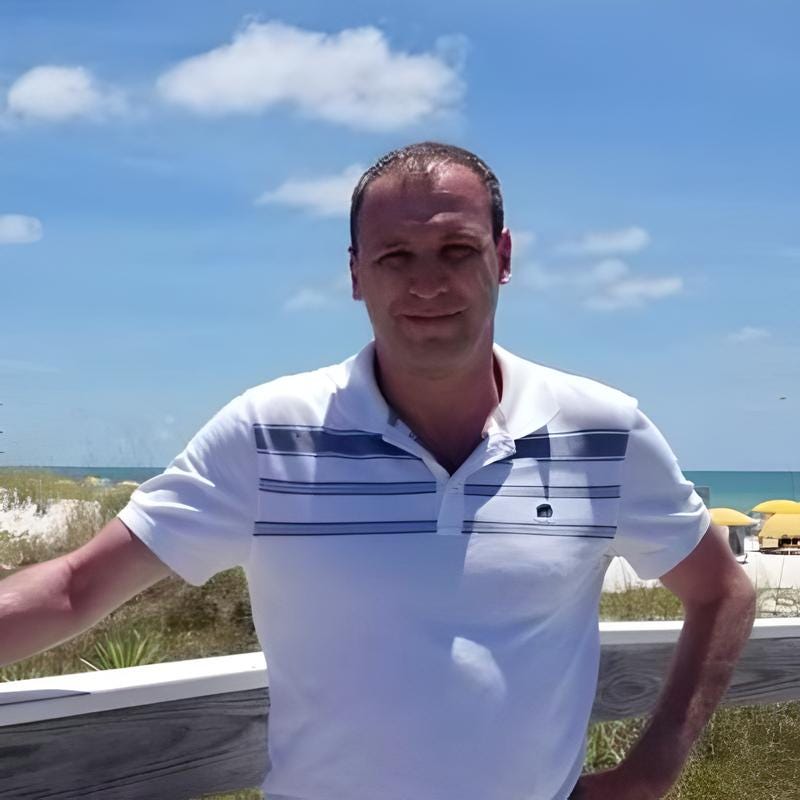
For 15 months, Boyne has been detained, as Connecticut officials claim his posts, which contain pointed critiques and satirical jabs, constitute threats against public officials. However, Boyne maintains that his posts, no matter how incendiary, fall squarely under the protections of the First Amendment.
Michael Volpe and I discussed Boyne’s case on a recent episode of The Unknown Podcast as part of our continuing coverage. Shockingly, Volpe, a veteran journalist, feared that there was a 10% chance that the Connecticut authorities would “come for him” in Illinois the same way they went for Boyne in Virginia, using federal and state law enforcement and levying criminal charges.
Boyne, a pro se litigant and graduate of the U.S. Naval Academy, heads to the Second Circuit Court of Appeals on the issues of the chilling effects that an outlandish and bad faith prosecution can have on free speech and free press rights. His case presents a strong opportunity for First Amendment advocates like Professor Eugene Volokh to intervene as amicus curiae.
Volokh has been involved in similar cases, championing the right to speech and expression—even offensive speech—as protected under the First Amendment. Yet, Volokh has remained absent from Boyne’s case, a silence that raises questions.
The Core of Boyne’s Argument: Free Speech vs. State Power
Boyne’s blog frequently criticizes the Connecticut judiciary, particularly the family court system, which he accuses of corruption and injustice. In one post, he made a controversial statement calling for readers to exercise “Second Amendment rights” around specific judges. Prosecutors allege these statements are veiled threats.
Boyne, however, insists that these statements are satire or political hyperbole, protected by the First Amendment’s allowance for dissent and critique of public officials.
“I’m criticizing, not inciting,” Boyne says, drawing parallels to Watts v. United States, a case where the Supreme Court deemed hyperbolic rhetoric non-threatening.
Boyne argues that Connecticut’s prosecution is not about true threats but rather about chilling speech that challenges those in power. His case echoes Dombrowski v. Pfister, where the Supreme Court acknowledged that government intimidation of critics can justify intervention if such actions have a chilling effect on free expression. Boyne contends that his ongoing detention is designed to suppress his criticism, a sentiment central to the Dombrowski ruling.
Why Professor Volokh’s Intervention is Essential
Professor Eugene Volokh, a prominent First Amendment scholar at UCLA, has previously advocated for free speech protections in cases involving online expression and political dissent. His influence could reshape Boyne’s case, shedding light on its First Amendment dimensions and framing Boyne’s speech as constitutionally protected.
Based on his blog posts, Volokh’s amicus participation would underscore the First Amendment implications of prosecuting Boyne. A notable example is his recent involvement in People v. Relerford, a 2017 Illinois case. There, the Illinois Supreme Court found portions of the state’s cyberstalking statute unconstitutional, ruling that restricting speech causing emotional distress violated free speech protections.
Professor Volokh’s arguments helped clarify that such laws cannot broadly criminalize speech based solely on subjective feelings of distress, especially when directed at public figures or political issues.
In Mashaud v. Boone, Volokh, as amicus, successfully argued that government officials cannot restrict speech merely because it causes offense. In this case, an individual’s critical speech about a public official was upheld under First Amendment rights, affirming that public criticism of officials is protected, even if it feels aggressive or uncomfortable to the officials involved.
Boyne’s case, where satire and critique of judges are at the forefront, aligns closely with the issues Volokh has defended in similar cases.
The First Amendment Principles at Stake
The implications of Boyne’s case reach far beyond Connecticut. If his speech—critical posts about state officials—can be criminalized under the guise of cyberstalking, it opens the door for other states to stifle dissent. Connecticut’s prosecution of Boyne rests on subjective interpretations of intent and perceived threats, which raises the risk of a dangerous precedent in First Amendment jurisprudence.
The U.S. Supreme Court established these protections in landmark cases, including National Socialist Party v. Skokie, where the Court upheld the rights of neo-Nazis to march through a predominantly Jewish community. The Skokie decision demonstrated the Court’s commitment to protecting even the most offensive speech as a matter of principle. If the First Amendment protects a neo-Nazi march, Boyne argues, then surely it should protect a blogger criticizing public officials.
Paul Boyne's Bombshell: "Former CT Supreme Court Justice Joette Katz is 'Running' My Prosecution"
NOTE: This outlet reiterates its condemnation of anti-Semitism in all its forms. However, this condemnation does not include restricting all speech expressing that hatred. We never condone using speech to incite violence against anyone, which is precisely the legal issue at the heart of
Boyne’s critics, like former Justice Joette Katz, view the WW2-era SCOTUS case Chaplinsky v. New Hampshire as foundational in understanding the limits of the First Amendment, particularly regarding "true threats." Katz highlights that Chaplinsky set a critical precedent by determining that certain forms of speech, particularly "fighting words" likely to incite violence, do not receive constitutional protection.
However, Justice Katz’s reliance on Chaplinsky rings hollow when viewed alongside other Stone Era High Court cases. Korematsu v. United States, which legitimatized the internment of Japanese-Americans, is universally considered a low point in Twentieth-Century American Jurisprudence. The case was formally overruled by Congress under Ronald Reagan in 1988.
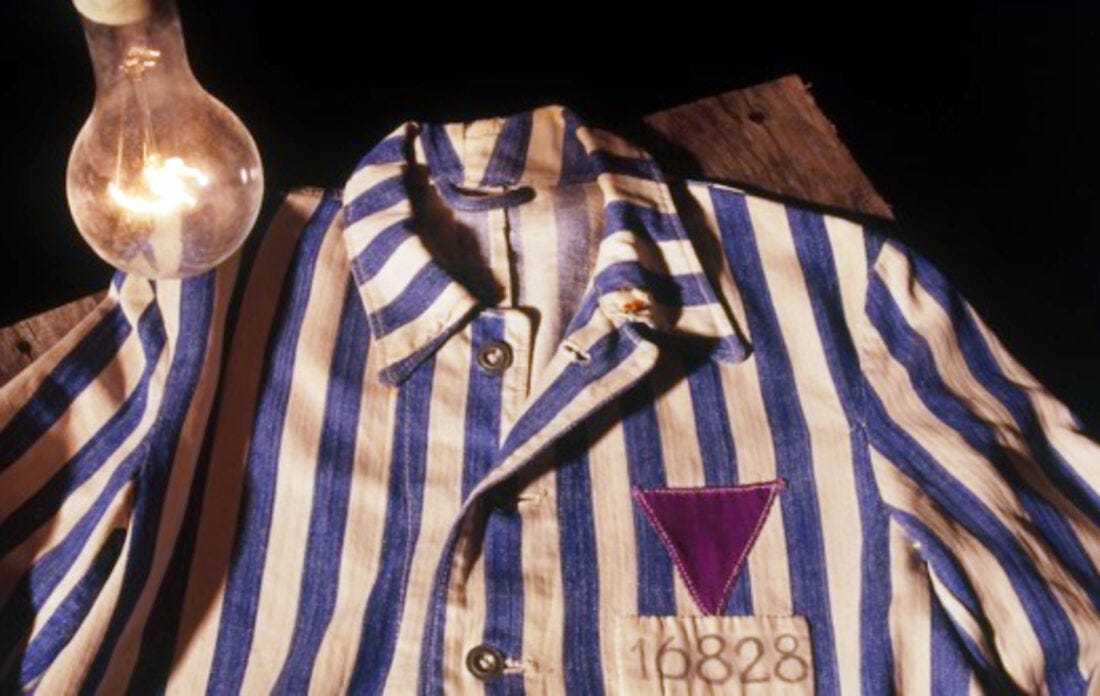
Katz’s citing of Chaplinsky related to Paul Boyne raises questions about her selective use of the case to justify legal actions against speech she finds offensive. The Chaplinsky ruling was rooted in the state’s desire to suppress Jehovah’s Witnesses, a powerless and despised group, using their speech as an excuse to curb their religious activities.
Volokh’s expertise would be instrumental in highlighting the unconstitutionality of prosecuting Boyne - a person entitled to press and speech clause First Amendment protections - for statements on his blog that Connecticut judges find offensive. Chaplinsky, Skokie, Relerford, and Mashaud make clear that speech cannot be criminalized simply for provoking offense. Boyne’s case tests the resilience of these principles in an era where online speech is often under increased scrutiny, and governments frequently misuse laws to stifle critics in unprecedented ways.
Why Isn’t Professor Volokh Involved?
Boyne’s legal observers and supporters wonder why Professor Volokh has not yet commented on his case. His prominent legal blog, The Volokh Conspiracy, is widely regarded as a top authority on legal and constitutional issues, particularly concerning the First and Second Amendments.
Some speculate that Volokh may be reluctant due to accusations that Boyne’s blog includes anti-Semitic rhetoric, as several Connecticut judges involved in Boyne’s criticism are Jewish. This reluctance could echo concerns that defending Boyne may appear as condoning offensive or bigoted views.
However, Boyne’s supporters argue that if Volokh shies away from cases like Boyne’s due to unpopular or offensive content, he risks undermining the very principles that free speech advocates have long defended. Boyne himself points to Skokie, where the First Amendment shielded speech regardless of its moral value or potential to offend.
“If Skokie protected Nazis, why wouldn’t it protect me criticizing Connecticut judges?” he asks. “Free speech jurisprudence was built on defending offensive speech. When the top advocates stay silent, it weakens those protections for everyone.”
A Litmus Test for the Limits of Dissent
Boyne’s case presents an essential test of the boundaries of dissent. Can a government prosecute someone based on subjective interpretations of “threats” without crossing into censorship? The issues raised are not merely legal technicalities but fundamental questions about the government’s power to control speech. Boyne contends that his blog posts are political satire, not threats.
“The state is criminalizing my opinions,” he says. “This case is about punishing me for speaking truth to power.”
Boyne highlights his concern that the courts are using subjective perceptions of threat to sideline criticism and muzzle him.
“Judge Brown and New Haven Prosecutor Jack Doyle have made me out to be dangerous for criticizing judges. If I can’t do that, then who can?”
Boyne’s former attorneys, who were dismissed, leaned into the narrative of his instability, suggesting he wasn’t competent to defend himself. Boyne disputes this claim, viewing it as part of an orchestrated campaign to sideline his constitutional rights.
The Pressing Need for Free Speech Advocacy
Boyne’s appeal to the Second Circuit represents a crossroads for free speech advocacy. If Volokh were to file an amicus brief or provide coverage of the case on The Volokh Conspiracy, it would bring significant weight to Boyne’s constitutional arguments and reaffirm the foundational principle that even critical or offensive speech deserves protection.
Professor Volokh’s advocacy could also signal to lower courts and prosecutors nationwide that free speech protections cannot be curtailed by rebranding criticism as cyberstalking. Without intervention from legal scholars like Volokh, Boyne’s case could set a precedent that stifles legitimate criticism of government officials—a precedent that would impact not only bloggers but all citizens seeking to voice dissent.
Boyne sums up the stakes: “This isn’t just my fight; it’s about defending everyone’s right to speak freely, without fearing jail. If Volokh truly believes in the First Amendment, this case should be important to him.”
We emailed Professor Volokh but received no response as of press time. If he responds, we will update:
From: Richard Luthmann <richard.luthmann@protonmail.com>
Date: On Monday, November 11th, 2024 at 7:43 AM
Subject: State of Connecticut v. Paul Boyne
To: Volokh, Eugene <volokh@law.ucla.edu>
CC: Michael Volpe <mvolpe998@gmail.com>
Professor Volokh,I wanted to call you attention to the Paul Boyne prosecution in Connecticut. Michael Volpe (copied) and I have been covering the case.
Virginia blogger Paul Boyne (a graduate of the US Naval Academy and former defense contractor whose life was derailed by a Connecticut Family Court case a decade and a half ago) faces prosecution in Connecticut, where he's held on charges of cyberstalking Connecticut judges. His real “crime,” he asserts, is daring to criticize the state’s judiciary on his blog, The Family Court Circus. For 15 months, Boyne has been detained, as Connecticut officials claim his posts, which contain pointed critiques and satirical jabs, constitute threats against public officials. However, Boyne maintains that his posts, no matter how incendiary, fall squarely under the protections of the First Amendment.
Mike Volpe (a veteran journalist) was investigated by the FBI over his coverage of this case. And that's just the tip of the iceberg of troubling actions in Connecticut.
On our latest episode of The Unknown Podcast, Volpe says he believes there is a 10% chance he will be arrested by Connecticut authorities. This is in America in 2024. A journalist fears arrest, and reasonably so.Boyne, a pro se litigant (some of his handwritten pleadings from jail are attached), heads to the Second Circuit Court of Appeals in a petition based on Dombrowski v. Pfister and the chilling effect on speech that his prosecution has. One of the scary features of this case is that the his own appointed counsel just tried to have him found incompetent to stand trial. He is not. He is an extremely intelligent man who understands First Amendment jurisprudence.
One of the bases for the incompetency claim was that Boyne believed that there was a "vast Jewish conspiracy" out to get him. His discovery shows he's not "crazy" - that former CT Supreme Court Justice Joette Katz has been overseeing his current prosecution. She left government in 2019.
Former Associate Justice Katz stepped down from the Connecticut Supreme Court on January 5, 2011, in anticipation of assuming the post of DCF Commissioner. She was confirmed by unanimous vote of the Connecticut State Senate on February 4, 2011. Commissioner Katz retired from DCF in January 2019.
In a January 2022 article for the Connecticut Law Tribune, she wrote about a blog—widely understood to be Boyne's—stating that it had escalated from "vile, disgusting anti-Semitic, anti-gay, anti-Black rants to actual threats of violence and death."Katz further emphasized the dangers of such rhetoric:
"While I know that it's not always easy to draw the line between a true threat and a statement that's simply alarming because of its violent and offensive language, I feel confident in stating that the threats made in the blog cross the line and are dangerous."
At a 2022 Anti-Defamation League symposium, Katz spoke about using legal tools to combat hate speech, even when direct convictions are challenging to secure. Boyne believes that Katz's public advocacy aligns with her alleged private efforts to influence his “silencing” prosecution, thus infringing upon his First Amendment and Due Process rights.
Boyne's discovery contained these notes and emails from the CT State Police:
The emails, dated between March 28, 2022, and April 19, 2022, are part of the Brady discovery in Boyne's case. Handwritten on the email is the language: “Cease and desist to stop uploading. Katz Speak To Only.”
This case presents a strong opportunity for a First Amendment advocate to intervene as amicus curiae. Frankly, Professor Volokh, you are it. You have been involved in similar cases (Releford, Boone), championing the right to speech and expression—even offensive speech—as protected under the First Amendment.
Would you consider taking a look at Boyne's case, writing about it on The Volokh Conspiracy, and potentially submitting an Amicus Brief for the Second Circuit? If no, why not? The universal disdain for Boyne's views are no less than the disdain for than the litigants in National Socialist Party v. Skokie.
Here are some of our questions:
Background on First Amendment Advocacy
You have been a prominent advocate for First Amendment rights. What originally motivated your focus on free speech issues, particularly in cases involving contentious or offensive speech?
How do you view the First Amendment’s role in safeguarding dissent, especially against public officials?
In cases where government officials allege threats or harassment, what guidelines do you believe should be in place to protect free speech without overstepping into harmful territory?
Do you believe your work in cases such as People v. Relerford and Mashaud v. Boone has had a lasting impact on how courts interpret “cyberstalking” statutes in relation to free speech?
On Relerford, Mashaud v. Boone, and Similar Cases
In Relerford, you argued that Illinois’ cyberstalking law was unconstitutional because it limited speech based on emotional distress alone. Do you see similarities between that case and Paul Boyne’s situation?
In Mashaud v. Boone, you successfully argued that criticism of a government official should be protected speech, despite causing offense. Would you say Boyne’s blog, with its criticisms of Connecticut judges, is similarly protected?
What role should the context of the speech—public criticism versus private harassment—play in deciding whether a statement is protected?
Do you believe the Relerford decision set a precedent for protecting speech critical of government officials, even if it’s perceived as distressing?
On the Paul Boyne Case
Paul Boyne is being prosecuted in Connecticut under cyberstalking charges for his criticisms of judges on his blog, The Family Court Circus. Based on your reading of similar cases, does his case present a First Amendment issue?
Boyne contends that his speech, however provocative, is satirical and protected by the First Amendment. Do you see merit in this argument?
In your opinion, should public officials, especially judges, have a higher tolerance for criticism given their position?
How should the courts differentiate between genuine threats and political hyperbole or satire, as Boyne claims his statements to be?
Do you think Boyne’s case, where judges feel threatened by his criticisms, falls within the definition of a “true threat” under First Amendment standards?
Does the context of Boyne’s criticisms—focused on exposing alleged judicial misconduct—change the way his statements should be evaluated under the First Amendment?
On the Legal Landscape and Government Overreach
The Dombrowski v. Pfister decision held that government harassment designed to chill speech could be grounds for intervention. Do you see parallels between Boyne’s case and Dombrowski?
Connecticut’s prosecution of Boyne is often characterized as an attempt to silence a critic of the judiciary. Does this align with patterns of overreach you’ve encountered in your career?
Do you believe Boyne’s detention for over 15 months prior to trial may indicate an attempt by the state to suppress his speech?
Are there constitutional protections that should be more rigorously applied in Boyne’s case, especially given his role as a public critic of the judicial system?
On Possible Involvement and Advocacy
Given the First Amendment implications of Boyne’s case, would you consider filing an amicus brief to bring attention to his free speech claims?
In your experience, what impact does an amicus brief have in cases involving complex First Amendment issues like Boyne’s?
If you decided not to get involved in Boyne’s case, would you explain what factors influenced your decision?
How do you determine which cases to support? Are there particular criteria you look for when deciding to get involved?
Boyne’s blog has been accused of anti-Semitic language, and some speculate this might discourage potential advocates. Do you think a case’s controversial content should affect a lawyer’s willingness to advocate for First Amendment protections?
On Broader Implications and First Amendment Principles
Boyne’s case has raised discussions about the limits of political dissent. Do you believe the First Amendment should fully protect the right to criticize government entities, even harshly?
Does the precedent established in National Socialist Party v. Skokie—where the Supreme Court protected Nazi speech—have relevance to Boyne’s case?
If Boyne’s case sets a precedent where critical speech of public officials can be penalized as cyberstalking, what impact do you believe this would have on future First Amendment cases?
In your view, what are the broader implications if Boyne’s statements are found to be unprotected speech?
How do you see the role of First Amendment scholars and advocates evolving in a climate where criticism of government officials can increasingly be labeled as threatening?
Hypotheticals and Closing Questions
If a court finds Boyne’s statements to be true threats (as retired CT Supreme Court Justice Joette Katz has argued), could this encourage states to suppress political criticism more broadly?
In a hypothetical where Boyne’s case reaches the US Supreme Court, what arguments would you most likely raise in defense of his free speech rights?
Do you believe Boyne’s pro se representation could affect his ability to adequately argue his First Amendment rights?
In the context of Boyne’s case, what message would you want to convey to the judiciary regarding the handling of speech perceived as offensive or critical?
Thank you in advance for your time and consideration.
Regards,
Richard Luthmann
Writer, Journalist, and Commentator
Tips or Story Ideas:
(239) 631-5957
richard.luthmann@protonmail.com
Muck Rack Profile
Substack: This is For Real?
Contributor: Frank Report
Editor-In-Chief: FLGulf.news
Contributor: Sun Bay Paper
Follow Me on TRUTH


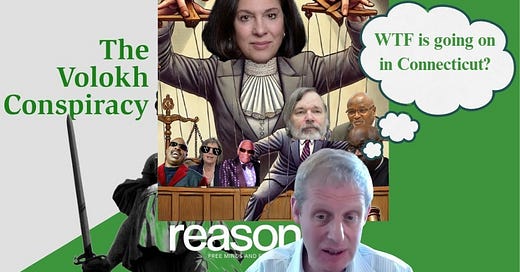



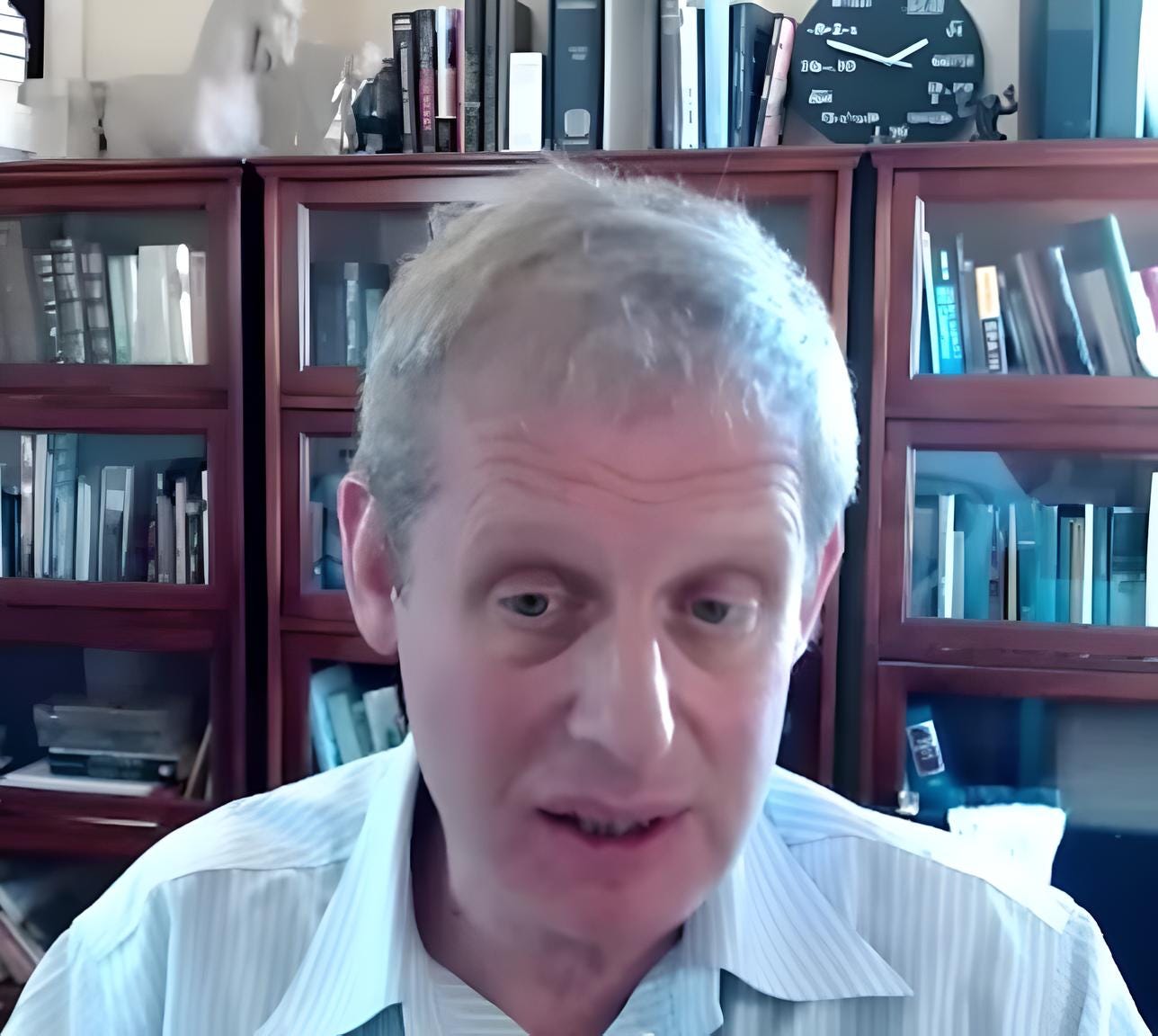
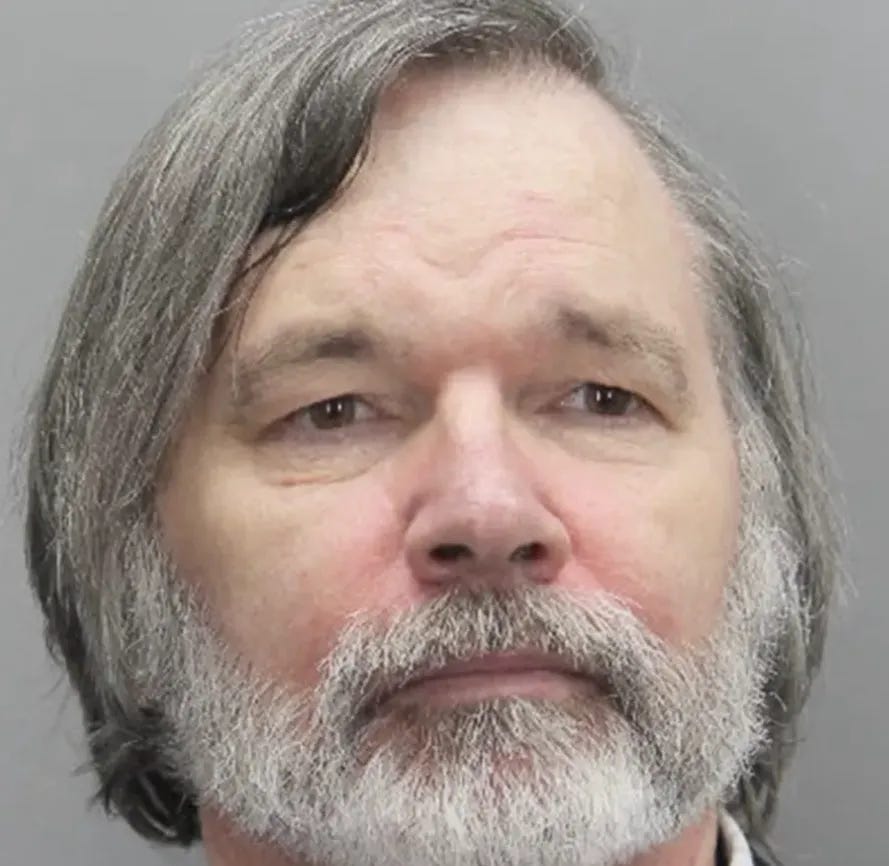
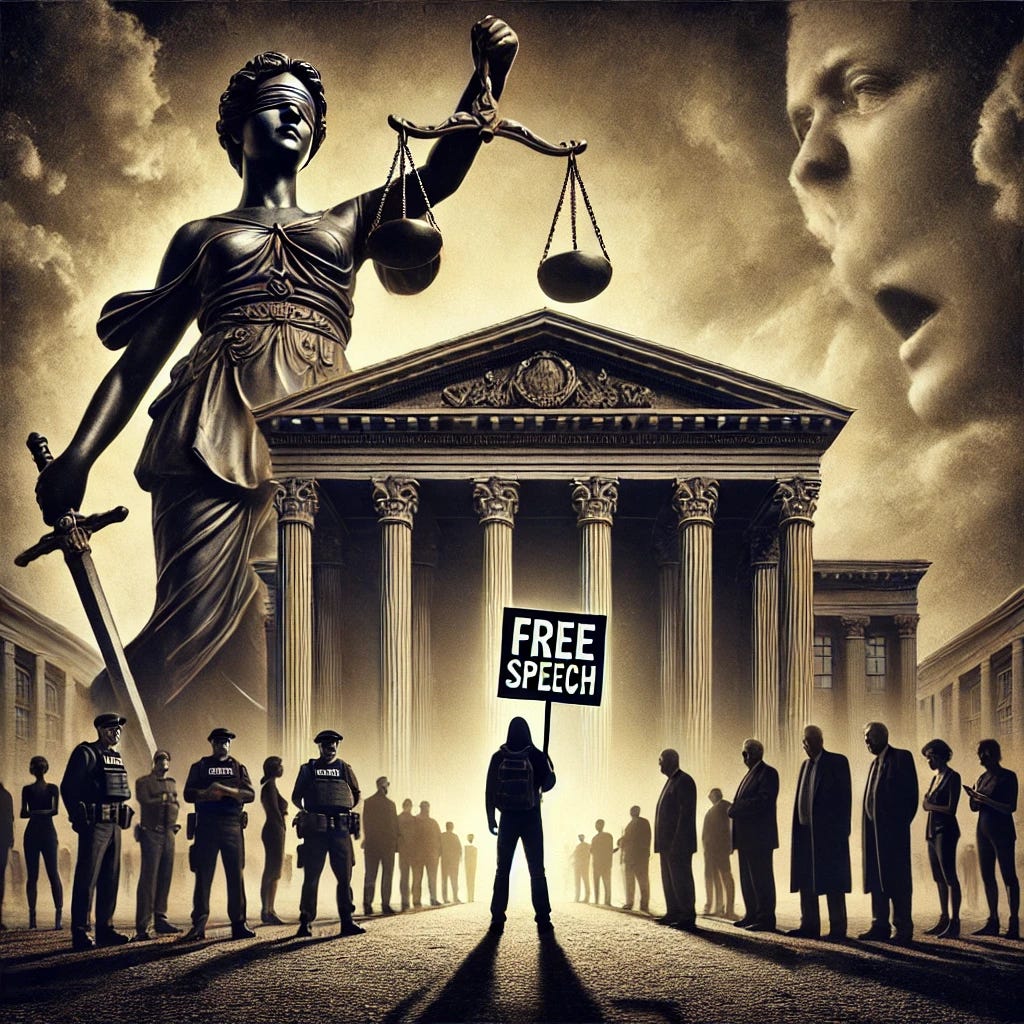






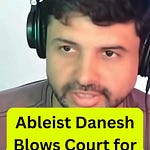

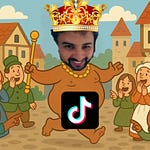

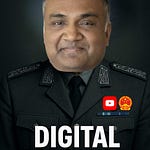



Share this post